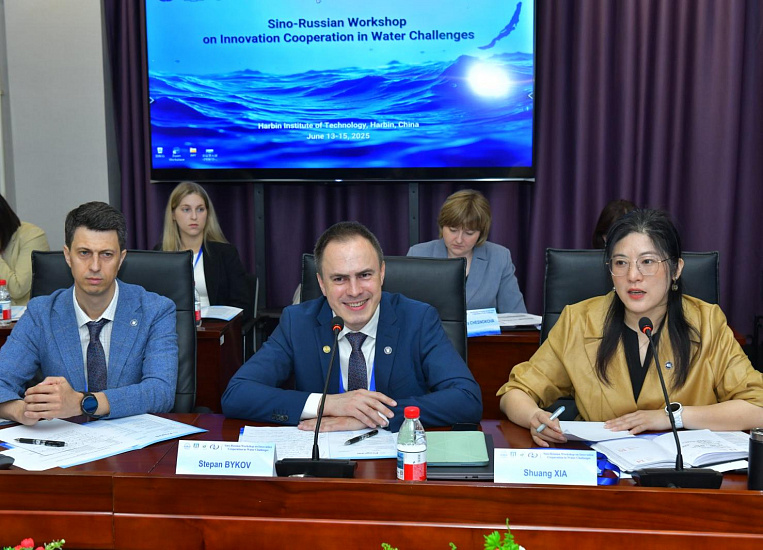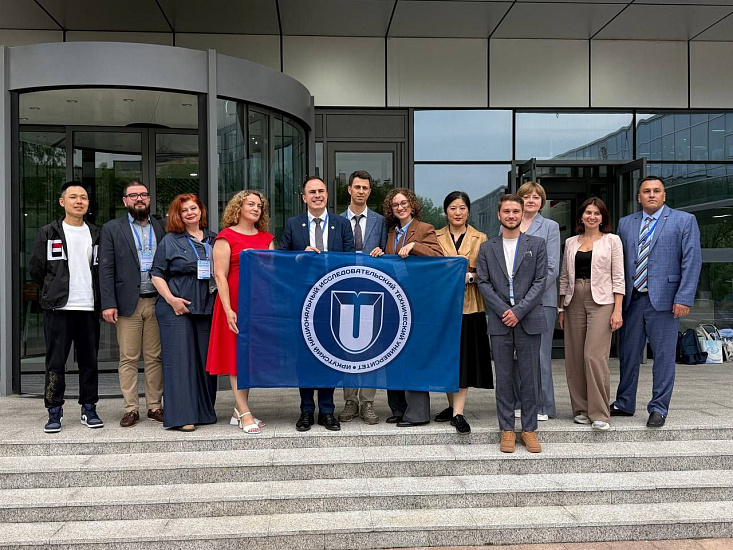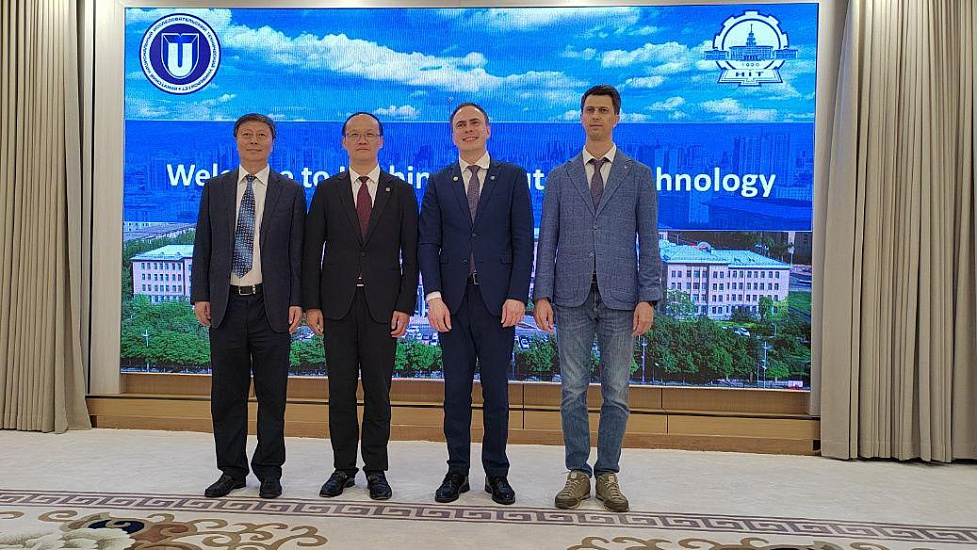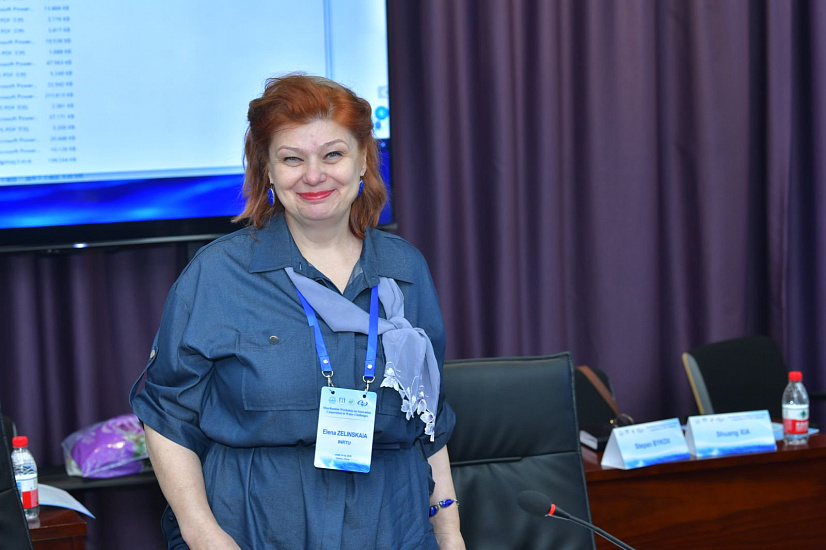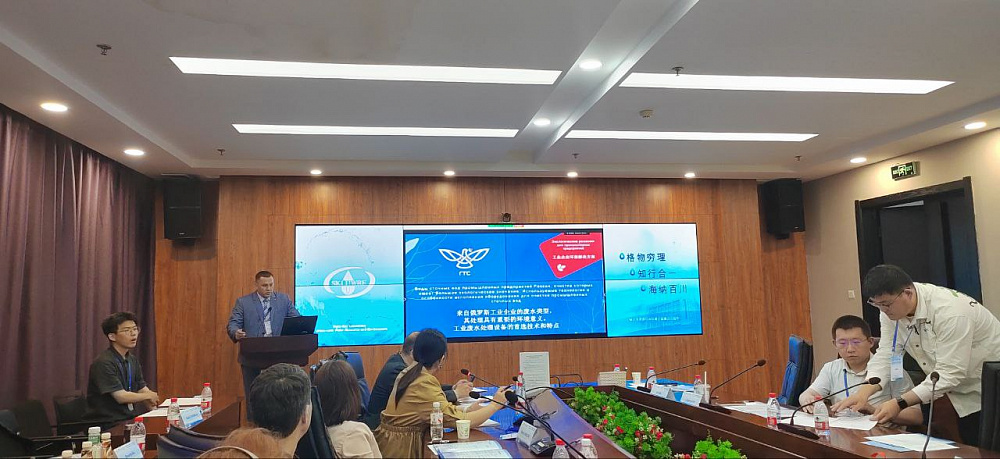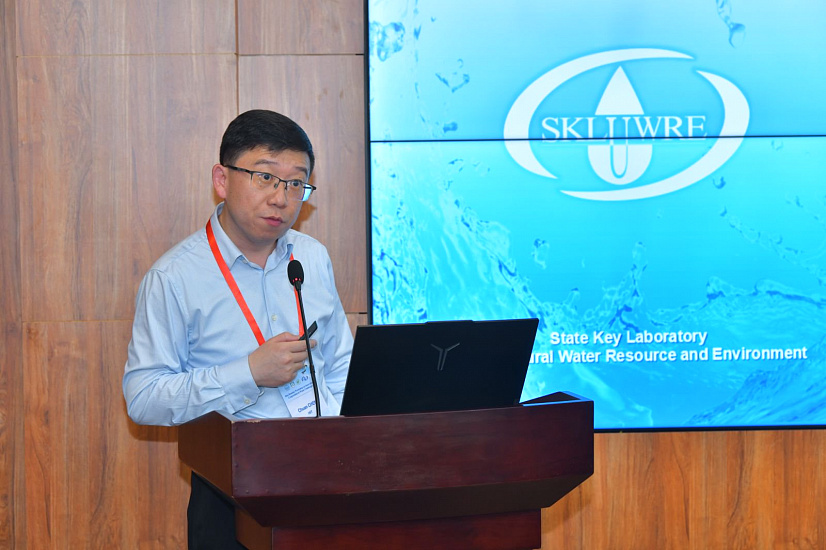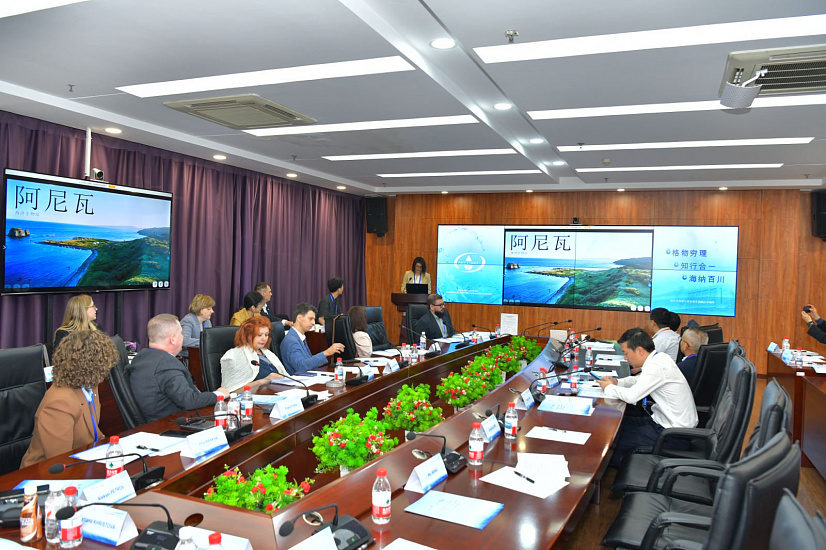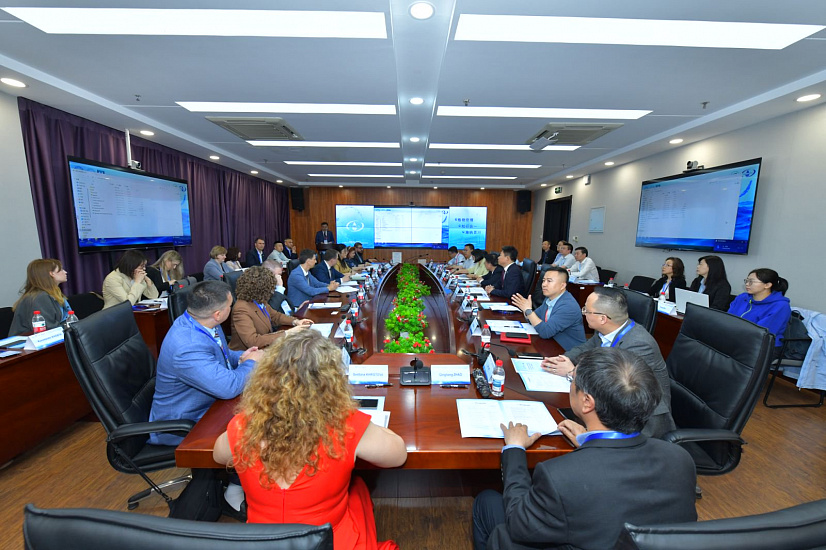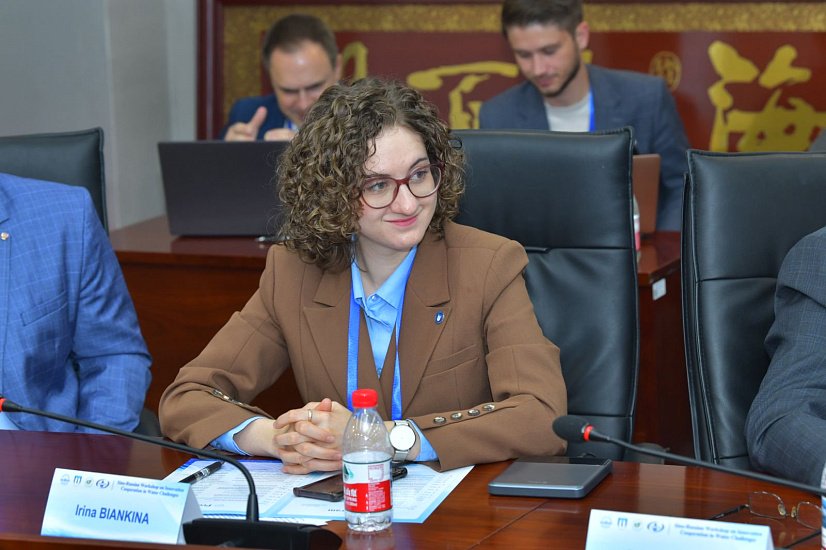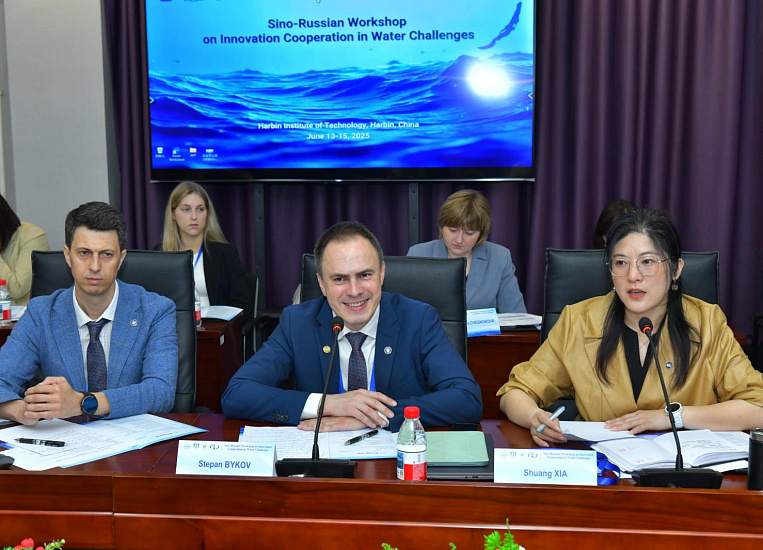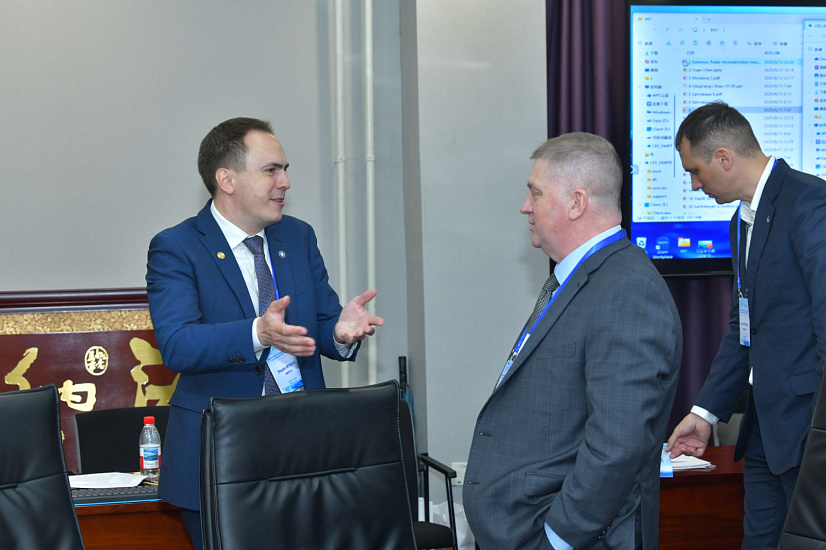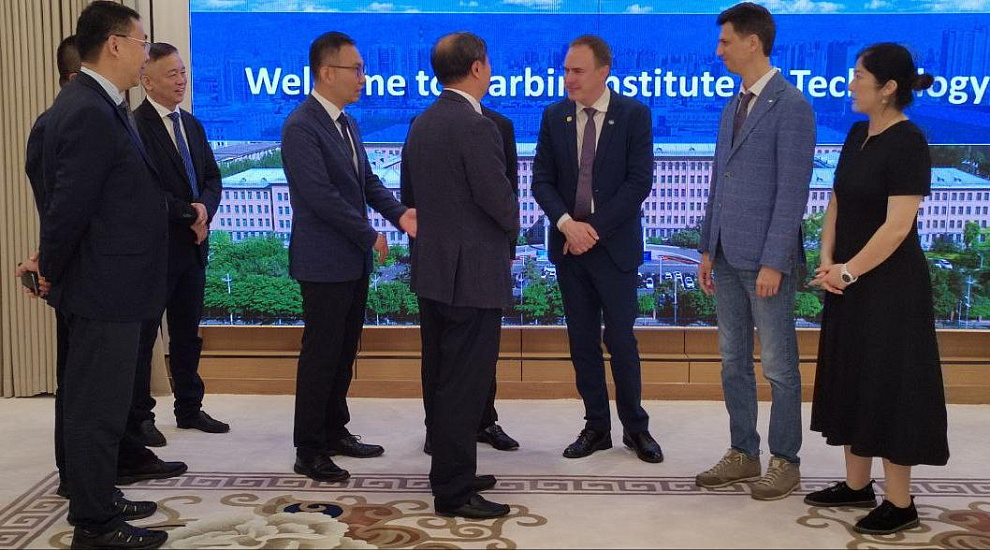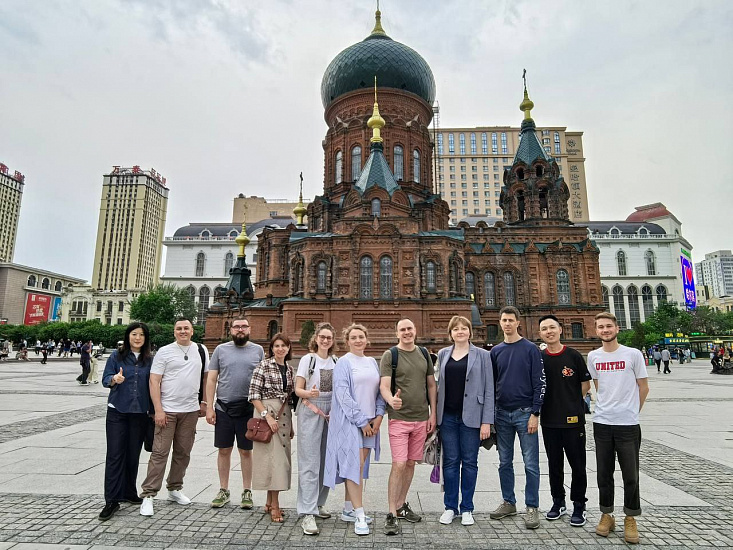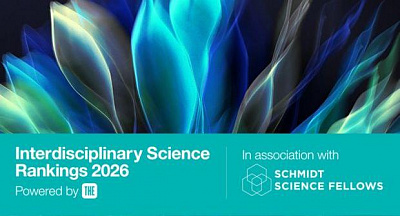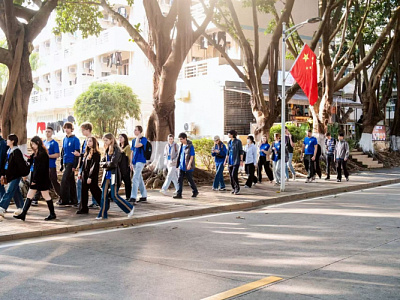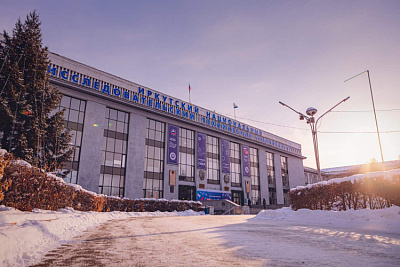INRTU and Harbin Institute of Technology Forge a Strong Research-Education Partnership
A delegation from INRTU paid an official visit to Harbin Institute of Technology (HIT), China. The Irkutsk representatives participated in an international seminar on water resource management, wh ere they discussed prospects for future scientific and academic cooperation. Additionally, INRTU reached an agreement with HIT to establish a joint master's program in power engineering at Baikal School of BRICS.
INRTU and HIT have been collaborating since 2019. The Irkutsk delegation visited Harbin from June 12 to 15. The INRTU team included over 10 representatives, featuring scientists, professors, as well as staff from Siberian School of Geosciences (SSG) and the Baikal Technology Transfer Center. Experts from En+ Group and Hydro Technologies of Siberia also joined the team.
The visit began with participation in Sino-Russian Workshop on Innovation Cooperation in Water Challenges (Water Challenges Workshop). The delegation was welcomed by HIT Vice President Yi Shen, who expressed gratitude to the INRTU team and industry representatives for supporting China-Russia collaboration in science and education.
Vice President Yi Shen proposed several initiatives to advance eco-innovation, including water purification technologies and rational water use. He also emphasized his interest in expanding academic exchanges, strengthening university-industry partnerships, and establishing a joint training program for specialized professionals.
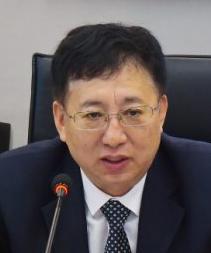
"HIT is China's oldest technical university, founded in 1920 with the support of Russian scientists - a fact that has special significance for our partnership. In recent years, Harbin Institute of Technology has been actively developing international collaboration platforms, including the Association of Sino-Russian Technical Universities (ASRTU). Water resource management is a global challenge, and our countries have immense potential for cooperation in this field," said Vice President Yi Shen.

INRTU Vice-Rector for International Affairs Stepan Bykov expressed confidence that the seminar would open new prospects for advancing science, education, and technology transfer. He noted that INRTU and HIT only over the course of a year held seven face-to-face meetings. The bilateral cooperation is developing in INRTU's priority areas. Among the joint projects, the Vice-Rector highlighted the submission of a grant application to the Russian Ministry of Science and Higher Education with the participation of Prof. Elena Zelinskaia, as well as the launch of a new educational program in environmental engineering. As part of this program, three INRTU students supported by En+ will travel to Harbin for internships next year.
Heng Liang, Director of HIT's School of Environment, joined the discussion and expressed hope that both universities would make concerted efforts in environmental protection and training scientific personnel.
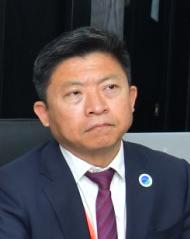
"We were inspired by Rector Mikhail Korniakov's proposal to establish a young joint team for water conservation," said Heng Liang. "This meeting brings together representatives from leading Russian and Chinese companies who will enhance our collaborative efforts significantly."
The Water Challenges Workshop featured over 10 presentations. INRTU Vice-Rector for Research Aleksandr Kononov shared his expertise on paleoclimatic reconstructions of permafrost in Eastern Siberia and Mongolia. Prof. Elena Zelinskaia spoke on the technological and environmental aspects of hydro-mineral resource utilization. Svetlana Khristova from INRTU SSG presented her research on ecological studies in the Baikal Region, while Natalia Revutskaya of En+ Group outlined the energy company's Far East projects.
The meeting also addressed important issues such as permafrost research, mineral resource utilization, and Lake Baikal conservation. Some INRTU representatives, including Larisa Auzina, Head of the SSG Hydrogeology Laboratory, and Gopalsamy Karthikeyan from Baikal School of BRICS, joined the discussion remotely.
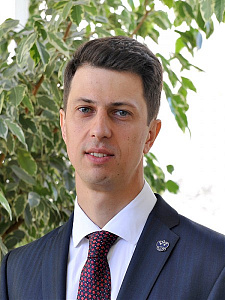
At the end of the event, Vice-Rector Aleksandr Kononov emphasized that water resource management is a global challenge that requires collective action. "This workshop is an important step towards addressing these issues through scientific collaboration," he noted. The Vice-Rector for Research proposed expanding the seminar into a large-scale international forum that would unite researchers and industry leaders in driving sustainable solutions.
On Sunday, June 15, INRTU representatives met with the leadership of HIT and the Department of Science and Technology of Heilongjiang Province. HIT Vice President Shuai Yong suggested to the Irkutsk team that they begin joint training for environmental specialists, increase academic exchange, and develop joint master's and PhD programs. He also emphasized the importance of developing the International Joint Research Center for Pure Water established in 2024.
For his part, INRTU Vice-Rector Stepan Bykov referred to HIT as INRTU's strategic partner, outlining areas of cooperation between the two universities and Heilongjiang Province. One such area involves organizing internships for PhD students and young teachers from INRTU School of Aircraft Construction and Mechanical Engineering in China. He also mentioned that HIT students would come to the Summer School at INRTU in July.
Head of Heilongjiang Province Department of Science and Technology Shi Zhaohui noted that the Irkutsk Region and Heilongjiang share similar climatic conditions. Historically, Harbin has been an industrial city, while Irkutsk, particularly INRTU, possesses strong scientific research capabilities. Shi Zhaohui announced his planned July visit to Irkutsk, emphasizing the Department's readiness to support joint research projects.
Following the meeting, the parties agreed to establish a joint INRTU-HIT master's program in power engineering. The program will be implemented at INRTU Baikal School of BRICS.
Photos by Arseny Chekmaryov
